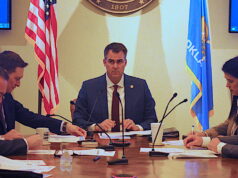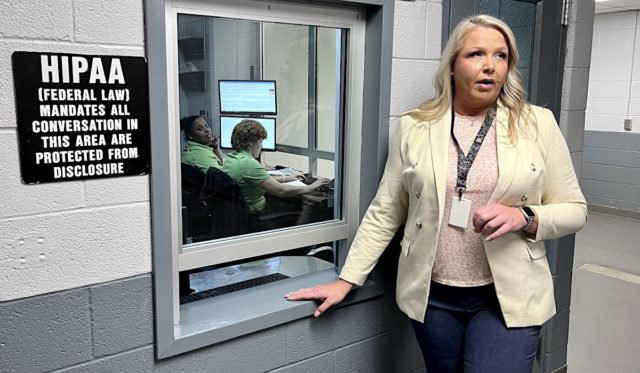

(Update: On Monday, May 1, the Oklahoma County Criminal Justice Authority hired Brandi Garner as CEO of the Oklahoma County Jail, removing her interim title. The following article from Jan. 23 remains in its original form.)
As she sweeps through the halls of the Oklahoma County Detention Center, Brandi Garner sees opportunities for improvement almost everywhere. Walls need to be painted, elevators need fixing, and staff members need to focus on jobs that come with life-and-death consequences. Garner recently stepped in as interim CEO of the troubled jail, so now it’s her responsibility to address these issues. While the job might scare some people away, right now it’s the only one she wants.
Garner replaced Greg Williams in December. Williams had served as the jail’s CEO since the Oklahoma County Criminal Justice Authority (often called the jail trust) took over operations in 2020.
Williams’ tenure was fraught with problems. For starters, 30 detainees died in the last two years under his administration. On top of that, a hostage situation resulted in the death of a detainee and a series of alleged sexual assault incidents were investigated, including the rape of a female detainee by a male detainee while she was handcuffed to a wall. The cloud of a grand jury investigation about the jail and the jail trust also lingers in the background.
These incidents sparked outrage among local activists who have been critical of Williams’ tenure, and they pressed the trust to remove him. In December, Williams retired.
Enter Brandi Garner, 44, who previously worked as an administrator at the Cleveland County Jail before becoming security director at the Oklahoma County jail in January 2022. When she took the job as interim CEO, the text messages she got from friends, family and former colleagues were a mix of happiness and gallows humor.
“It was congratulations or condolences,” she said in an interview with NonDoc. “And I’m like, it’s absolutely congratulations. This is what I’ve dedicated my whole career to. This is what I want to do. I can think of no better proving ground than this place.”
‘I could have easily been on the other side of this’

Brandi Garner grew up on the south side of Oklahoma City. She attended U.S. Grant High School, but, according to an interview with Boyd Street magazine in 2020, she dropped out before graduation and moved in with her boyfriend at the time, who she said was abusive.
“Growing up was a little bit challenging,” Garner told NonDoc. “I had a single mother, and she had me when she was a teenager, and she had no real support system besides her sister. I ended up staying with my aunt for the first five years of my life. I think all of that set me up for developing the empathy and the compassion that’s necessary to do this job right. But I did make bad decisions. I could have easily been on the other side of this.”
Garner said she found her center with marriage and, later, a family. She trained as an EMT but left that career after her husband deployed to Iraq.
“I thought, ‘You know, I don’t want to be around that kind of gore while he’s deployed,'” she said.
She became a reserve officer for the Oklahoma Bureau of Narcotics and later moved on to the Cleveland County Sheriff’s Office.
“I wanted to be a cop on the street,” she said.
Cleveland County’s jail is operated by the sheriff’s office and governed by the Board of County Commissioners. As a deputy with the Cleveland County Sheriff’s Office, Garner often interacted with staff at the facility.
“Every time I went up there, they kept trying to recruit me to work there full time,” she said. “And I thought, ‘I don’t want to work at a jail, I want to be on the streets.'”
But that changed after she started working in the Cleveland County Jail.
“The first month, I knew this is what I was meant to do,” she said. “I took that as an opportunity to learn everything I could and progress through the ranks there, and ended up as a major and left and came here in January 2022.”
‘We’ve totally revised the intake process.’
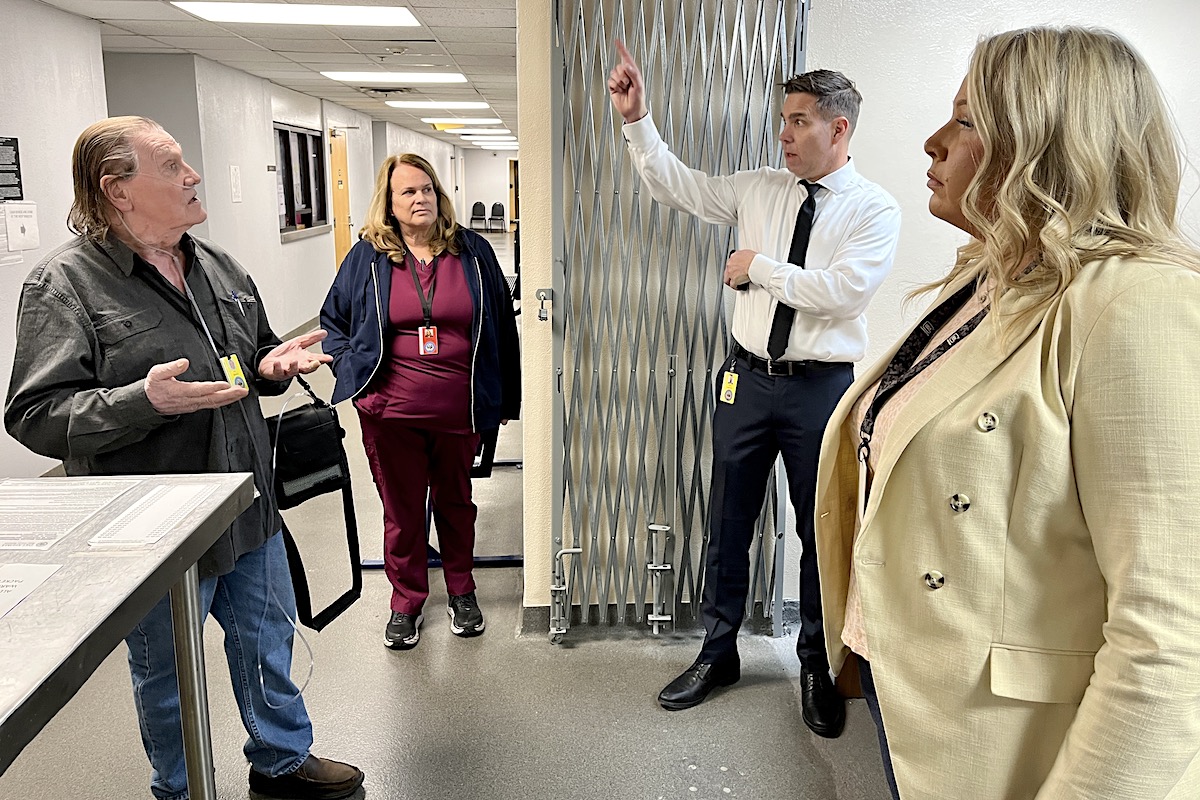
Garner’s career path has not been easy, however, particularly as a woman in a profession dominated by men. In fact, she became the first woman to be in charge of the Oklahoma County Jail since the current facility opened in 1991.
“It takes a while as a woman to earn their respect in this career field, whether it’s the law enforcement side or the corrections side,” she said. “I think we have a different way of handling things that sometimes men don’t understand until they see how effective it can be. And just being heard is one of the biggest challenges. But as a woman you just have to continue to put your voice out there.”
Garner has plenty of things on her to-do list these days. Perhaps most important is reducing detainee deaths. One detainee, Luis Gonzalez, died about one week after Garner took over. She said the jail’s troubling track record weighs on her every time she enters its doors, and the concerns about safety linger long after she leaves.
“It does weigh on me a lot, but that’s OK,” she said of her responsibility to staff and detainees. “I’ve been that way my whole life with my whole career. I’m constantly worried about what’s happening up here, to the point where I will sometimes review video or footage from home on my computer. And I will call up here if I see something wrong. They know that I’m watching. That’s something that’s new for them, because they’re not used to having that level of supervision.”
Deaths at the Oklahoma County Jail have made headlines and have battered the county’s reputation. Some activists argue that the facility has become a death trap and should be taken over by the U.S. Department of Justice, which already refuses to hold its prisoners or detainees there owing to long-standing issues. The jail’s problems are known well enough in the community that, in June, Oklahoma County citizens voted to approve the construction of an entirely new jail, though it will be several years before that plan comes to fruition.
“I think we have a lot to repair with the community,” Garner said. “I think we have to rebuild trust. I think, right now, there are a lot of people who have the wrong impression, much like I did when I came over. They have the wrong impression of the job that we’re doing here and the kind of people that are working here. I want to work really hard to be transparent about who we are and what we’re doing and maybe just put that on display. I understand that there is a negative perception surrounding this entire facility, but I’m going to work hard to try and change that.”

One major concern is fentanyl, which makes its way into the jail smuggled by detainees or staff. Posters and signs dot the walls of the Oklahoma County Jail, warning of the dangers of the potent drug. The jail has also taken steps to try to stop the flow of fentanyl and other drugs into the facility, such as using an X-ray body scanner. Garner said she wants to reduce in-jail deaths to zero, but she also said that goal is largely aspirational.
“It’s complex,” Garner said when asked why so many people have died in the jail over the past two years. “We are dealing with some of the unhealthiest people here. I think it’s important for people to know how seriously ill some of the people are that are coming in here. I do think that we can improve on our processes and what we’re doing to identify people that are at risk of suicide or of having some kind of acute health event here. I think we’re doing that.”
To help address this issue, Garner said she has expanded the scope of the medical questions detainees are asked at intake to be more comprehensive.
“The medical screening was something like seven questions and getting vital signs,” she said. “That did nothing to promote a standard of care that I was comfortable with. People would come in on chronic care medications, and they wouldn’t receive them for several days because we didn’t know that information. We’ve totally revised the intake process.”
‘Brandi is the right person for the job’
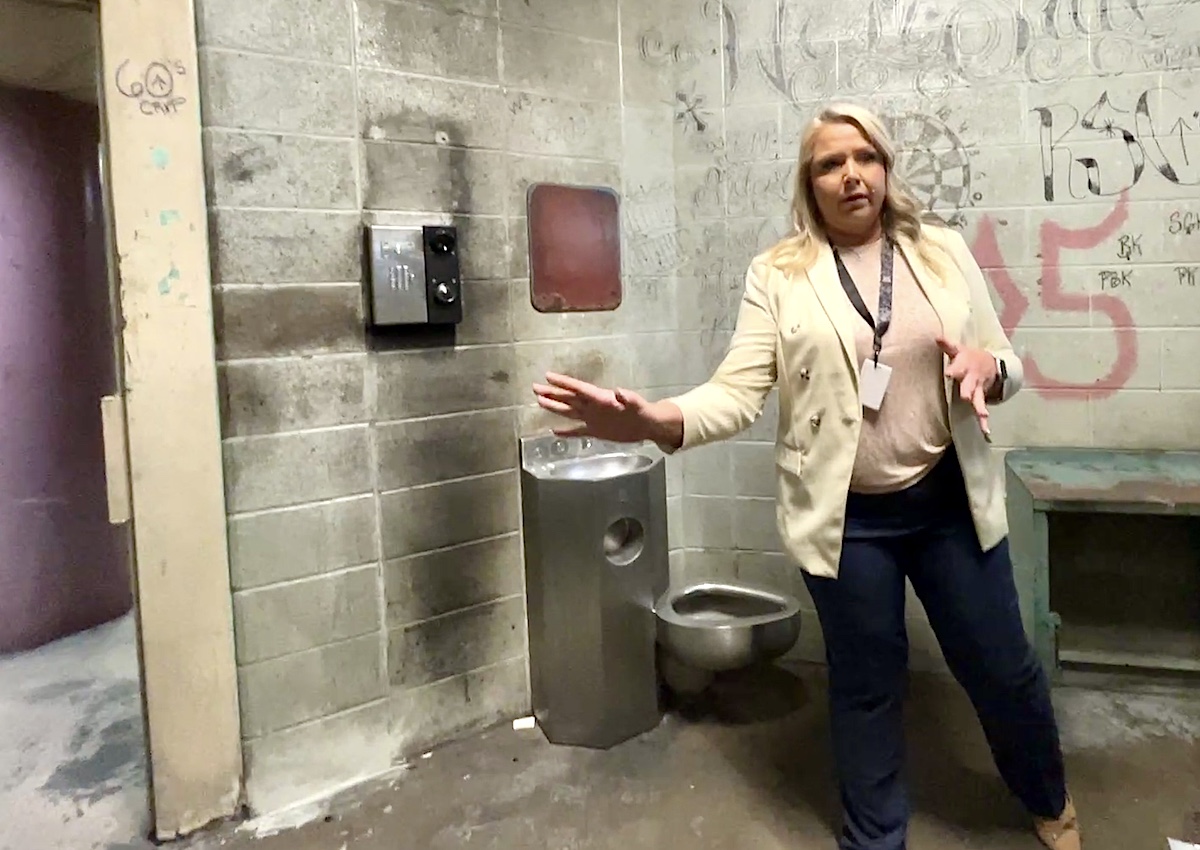
Garner has earned the respect of some of those who campaigned for Williams’ removal. This includes Jodie Poplin, who made Williams a frequent target of pointed criticism during jail trust meetings. Poplin said she works as a voice for detainees who don’t have one of their own. She mails packages for them, helps arrange phone calls to public defenders and sometimes personally advocates on their behalf to judges.
“Brandi’s the right person for the job,” Poplin said. “She has the experience, but her whole heart is in it. She cares about the individuals, and she’ll go talk personally to inmates. She’s been inside for a year now, and I think she knows what needs to be done, and I think she knows how to fix it. It won’t be easy, because that place has a lot of problems that the last person in charge didn’t fix. But she will, or will try her hardest.”
Garner wants to continue some initiatives that began under Williams, such as allowing detainees more time out of their cells, which is difficult enough owing to the current building’s 13-story design with only two working elevators to transport detainees. (A third elevator is broken and would cost tens of thousands of dollars to repair.)

Still, Garner said she wants to ensure that people’s time out of their cells is well spent.
“I want to see us continue to increase the amount of time they are out of their cells, but I also want to find meaningful activities for them to do,” she said. “Right now, we’re finding they are getting more time out of their cells, but now they’re bored. And whether that’s through programs or different activities, I don’t know what that looks like.”
Garner also believes the jail’s leadership could use some polishing. She does not want to make the lives of detainees more difficult than they need to be, so she wants to avoid developing battle-hardened jailers who become miserable in their jobs.
“Everything I’m doing here, I’m trying to promote a culture of compassion and professionalism,” she said. “There are a whole lot of other things that I would throw in with that, but it boils down to (the fact that) I want us to be professional and I want us to be able to demonstrate compassion and empathy toward the people that are here. That’s not to say we’re going to be soft on them. But most situations you can handle by just talking to people.”
Staffing levels remain a concern
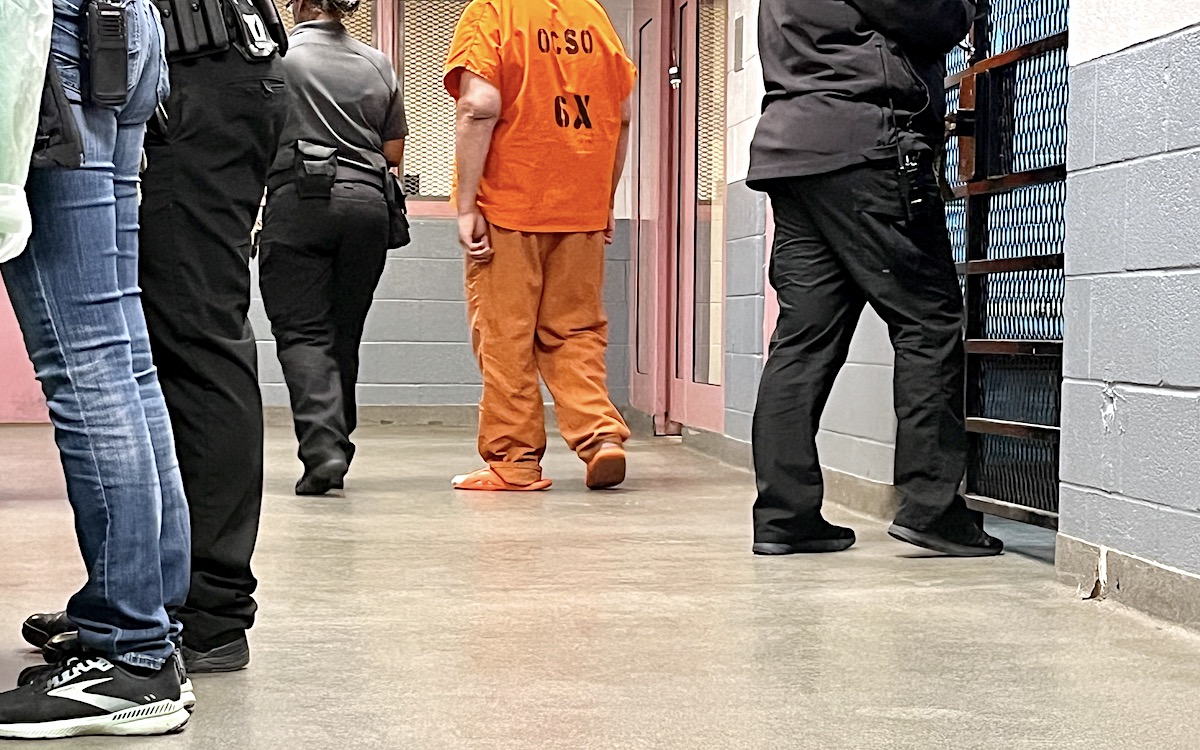
For years, keeping the Oklahoma County Jail adequately staffed has been a major problem. About 310 people currently work at the facility, but more are needed. Employees currently start at about $3,100 per month, and they gradually get increases the longer they remain on staff. But recruiting efforts have been hit or miss, and it’s hard to attract people with money because the jail’s operational budget has remained the same since 2018.
“It’s a hard job,” Garner said of working at the jail. “I do think the media plays a role in it. Unfortunately, people’s perception is shaped by the media and not necessarily first-hand knowledge. I do think that we need to start attracting a better quality candidate, but I can’t do that without funding.”
Garner said she would also like to foster a better relationship with the Oklahoma County District Attorney’s Office. Williams had a testy relationship with former Oklahoma County DA David Prater, who frequently criticized the facility’s operation and the jail trust. Garner hopes her relationship with new District Attorney Vicki Behenna will be more constructive. For instance, Behenna’s office has input with judges regarding applications for own-recognizance bonds, which can help reduce the jail population by allowing for the release of detainees who are accused of low-level crimes or who are suffering from serious medical problems.
“She did take a tour here, and I felt like maybe she was receptive to some of the things that I talked about while they were in here,” Garner said. “I want to build that relationship. I hope they will be a little more supportive of programs and alternatives to incarceration, that maybe we can work together to get people out of here that probably shouldn’t be in here. There are people who are here that are losing their houses, their jobs, their families while they’re here.”
‘I want to see this place succeed’
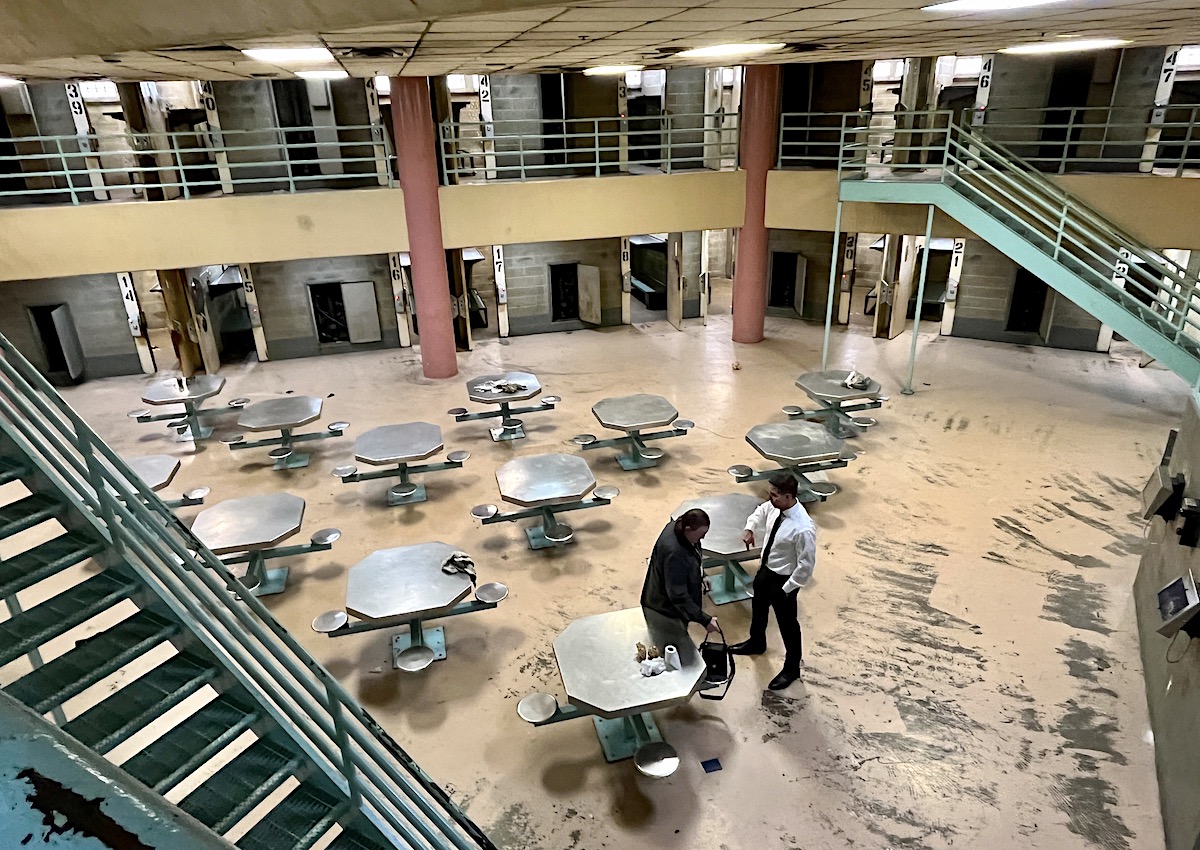
Garner is hesitant to critique the way her predecessor ran the jail. When asked what she will do differently than Williams, Garner instead pivoted to differences in management style.
“I don’t want to speak for what Mr. Williams did,” she said. “I just think that I have a more proactive approach. I like to have conversations with people that don’t necessarily agree with what’s going on. I like to try to educate people about issues that we have here and be as open as I can on them.”
Garner said she intends to be involved in even the most minute details of running a jail.
“I come in and I see things, and I take action and I get them done,” she said. “I’m trying to be responsive to everybody. When people call and they have issues that so-and-so isn’t getting their medications, I check on it and I make sure and I follow up and I confirm that it is getting done. Not to say that hasn’t been done, but I’m a little bit more communicative, maybe.”
Whether her role as interim CEO leads to a permanent position remains to be seen. The jail trust intends to conduct a national search. Still, her efforts to improve the jail have not gone unnoticed by those who will be in a position to remove the interim title. Interim jail trust Chairman Ben Brown said Garner’s initial tenure has been positive.
“She brings a lot of good ideas and a lot of enthusiasm,” Brown said. “Certainly, I am assuming that as we are conducting our search for a permanent CEO, she will apply. And if she is the best applicant, then she will be hired. If someone better than her applies, then that person will be hired. But I do know that she has good support among the trustees and from employees at the jail.”
Currently, Garner is contracted to make about $135,000 per year. Brown said some county jail CEOs elsewhere in the country make more than $250,000. So the county might need to offer more money if it wants to attract applicants from outside the region. He said the trust doesn’t have a firm timetable on hiring a permanent CEO and has informally consulted with the Department of Justice on leads for prospective candidates.
“We’re moving through as quickly as we can,” Brown said. “It takes some time, and it’s my understanding that it is a tight job market. We don’t want it to drag on, but we also want to make sure it’s done right.”
When asked if she wants the job permanently, Garner fired back with an unequivocal, “Yes.”
“I want to see this place succeed,” she said. “I know that I can make it successful. I have a team I trust, and I’m bringing in some new blood into some key positions. I know that we all together have the skills to make this place as successful as it can be.”












